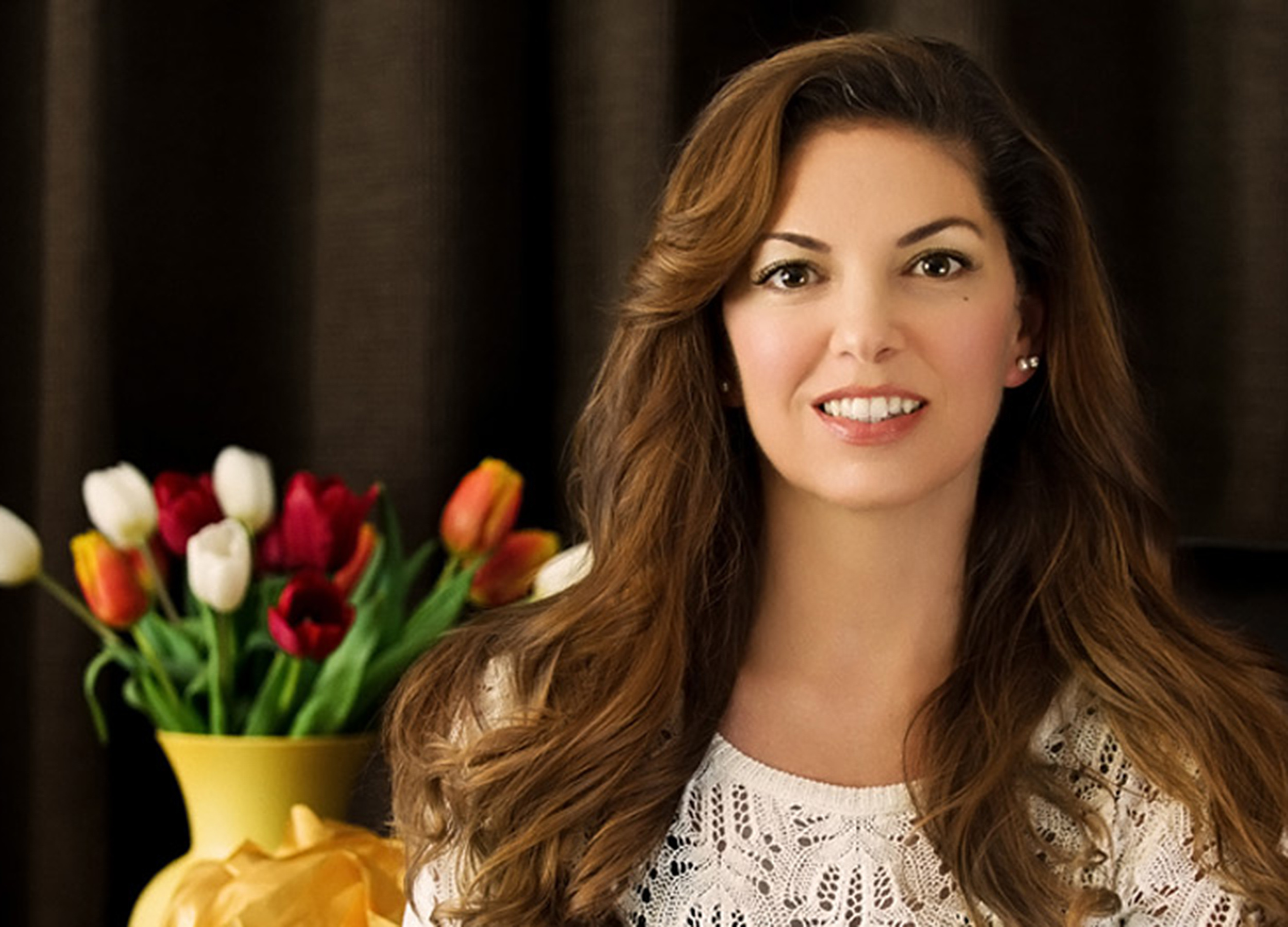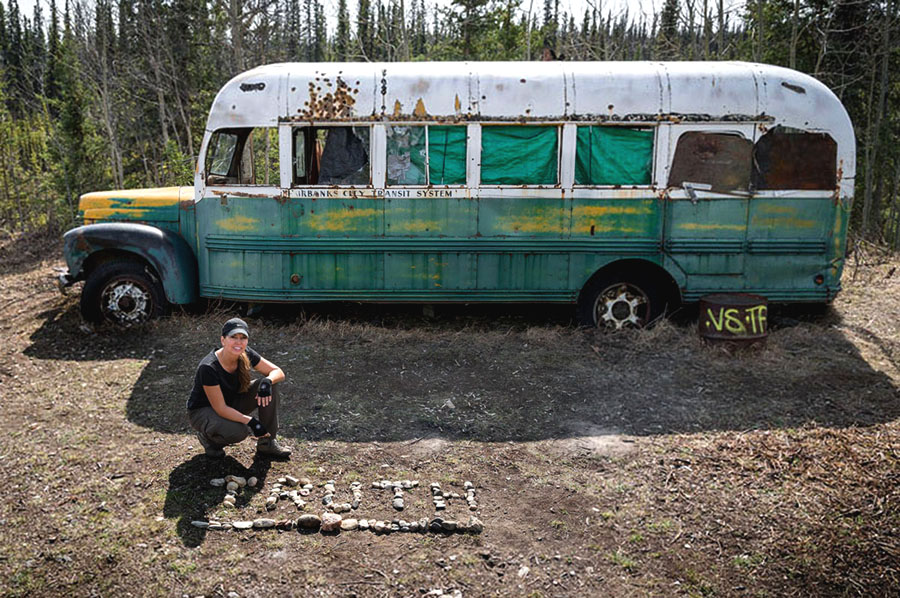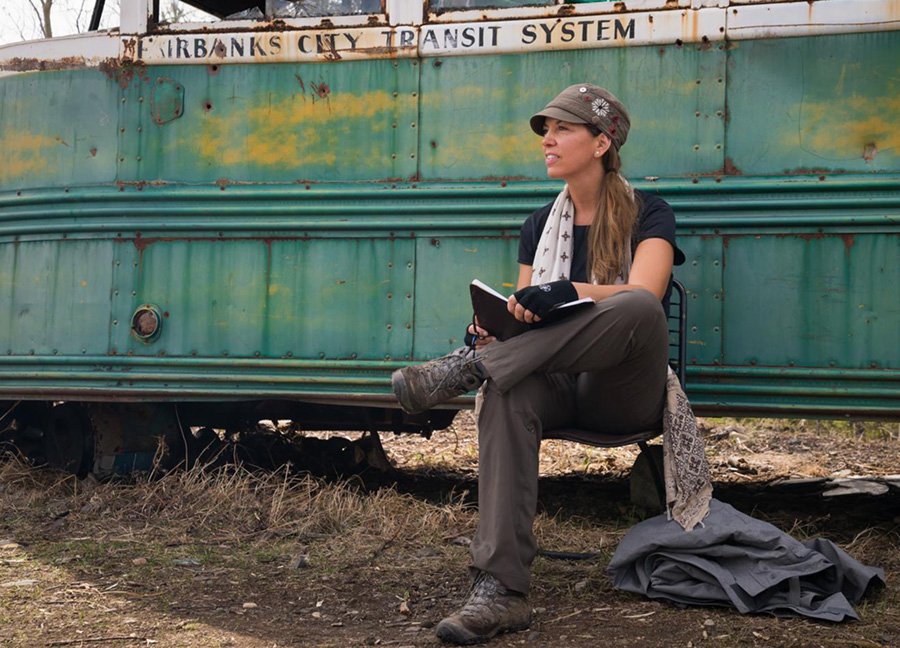The Wild Truth: An Interview with Carine McCandless
In 1992, Chris McCandless abandoned civilisation and disappeared into the Alaskan wilderness. Four months later, his body was found in an abandoned Fairbanks City Transit Bus off the Stampede Trail, leaving behind a legacy of inspirational writings. His story was brought to life by the 2007 movie Into The Wild. Here, Chloe Skeggs talks with his sister Carine McCandless — author of The Wild Truth — about the lessons to be learned from her brother’s death.
Your book The Wild Truth does an amazing job of capturing the violent and deceptive environment you and Chris grew up in. Do you believe Chris was wanting to leave behind your family, or society in general, when he began his nomadic existence?
It was important to me that the reader be immersed within the environment so they could better understand it. I make a point to not speak for Chris, but to allow him to speak for himself through the letters that he wrote to me before he headed west after college. Through them, and the conversations we shared, he was quite clear about how the detrimental actions of our parents made him feel that he needed to leave in the manner that he did. He didn’t want that identity to define him.

From that and my own experiences, I believe Chris found it hard to trust in people, and that certainly affected his view of society. But he remained a social and friendly person. He had hope. His past pushed him away, and his love of nature pulled him to where he knew he would find the inner peace needed to be able to engage day to day with society again in a positive way.
The very basic core of a man’s living spirit is his passion for adventure. The joy of life comes from our encounters with new experiences and hence there is no greater joy than to have an endlessly changing horizon, for each day to have a new and different sun.
Chris McCandless
Judging by your relationship, as portrayed in The Wild Truth, you knew Chris better than anyone. In your opinion, what do you think was the main catalyst for him wanting to head into the Alaskan wilderness?
It was the toughest challenge he could imagine. Chris would talk about challenging himself both physically and mentally as if it were an act of cleansing himself spiritually. He was in search of the peace, purity, and honesty that were not a part of his childhood. Where better to find those elements than in nature? And where better to immerse yourself in nature, than in Alaska?
When your brother attempted to leave the Stampede Trail on July 3, 1992, what sort of life do you believe he was intending to return to?
We will never know this answer, unfortunately. My opinion is that Chris would have always been an adventurer, but that he would have used his education, intelligence and determination to balance his thirst for adventure with work he could be proud of. He would have placed himself in purposeful occupation, perhaps as an educator, a writer, a journalist, an advocate — work that would keep his mind busy and would constantly have him learning and exploring.

Judging by the opinions of Chris, portrayed in both The Wild Truth and Jon Krakauer’s Into the Wild, it appears that he made a strong impression on people, even those he knew only briefly. Why do you think this was?
He was rare. He was remarkable. He made people think, whether it was from conversations they had with him or just by simply observing him. It caused them to think about themselves, their own lives. There are so many lessons to learn from Chris’s successes, and from his mistakes. And he would want people to take all of that in, while in search of their own true path, not in following his. To that end, it isn’t about Chris. That is why his story is so timeless and resonates with so many people.
Have you noticed a shift in the perception of your brother since the release of your book?
Absolutely. One important shift is that those who thought Chris was just reckless or had suicidal tendencies, when provided all of the facts about Chris’s life and death, realised that simply was not the case. He was an overconfident and underprepared young man in some aspects, sure, but that young man wanted to live, and learn from his experiences.
But it’s important to note that I did not write The Wild Truth to defend Chris’s actions. Nor did I write it to condemn my parents, for that matter — we all make our mistakes. I wrote it because I had cause to realise that it would help others dealing with family dysfunction, that it could empower victims of domestic violence and raise awareness so there are fewer victims in the future.

When Jon Krakauer wrote about Chris’s disappearance in his book Into The Wild in 1996 — which was later made into a movie — the book became required reading in thousands of high schools and colleges for almost two decades. When I finally began to accept invitations to speak at these schools, I saw what a profound effect it had on the students to have the rest of the story. Providing my own perspective took Chris beyond literary legend. It made him real.
That personal insight enabled the students to identify with Chris. Thus it became less of an assignment and more of a lesson that would stay with them beyond their time with a character in a book. That has proven true for students of all ages, from diverse individuals all over the world who have read Jon’s book or have seen Sean Penn’s movie adaptation. Regardless of our age and circumstance, we are all students as long as we are lucky enough to be alive and care enough to be aware. And the greatest lessons come from that which makes us human, not from what makes some iconic figure.
I had my own lessons to learn. Mistakes and accountability, awareness and forgiveness, faith and purpose. These are the valuable lessons that come from Chris’s entire story. And I finally realised what a disservice I had done by not sharing it sooner.

